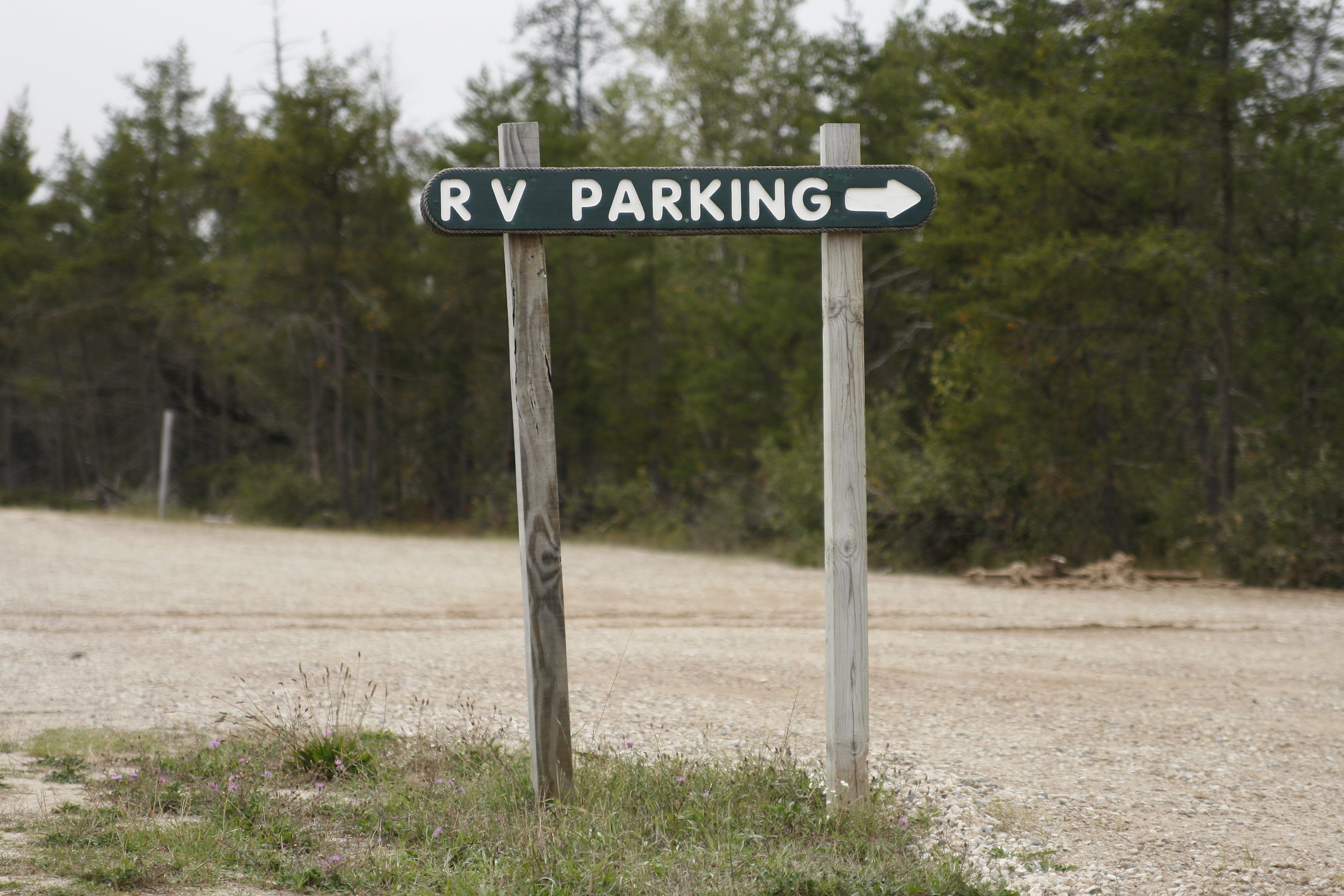
Profit and prosper with the best of Kiplinger's advice on investing, taxes, retirement, personal finance and much more. Delivered daily. Enter your email in the box and click Sign Me Up.
You are now subscribed
Your newsletter sign-up was successful
Want to add more newsletters?

Delivered daily
Kiplinger Today
Profit and prosper with the best of Kiplinger's advice on investing, taxes, retirement, personal finance and much more delivered daily. Smart money moves start here.

Sent five days a week
Kiplinger A Step Ahead
Get practical help to make better financial decisions in your everyday life, from spending to savings on top deals.

Delivered daily
Kiplinger Closing Bell
Get today's biggest financial and investing headlines delivered to your inbox every day the U.S. stock market is open.

Sent twice a week
Kiplinger Adviser Intel
Financial pros across the country share best practices and fresh tactics to preserve and grow your wealth.

Delivered weekly
Kiplinger Tax Tips
Trim your federal and state tax bills with practical tax-planning and tax-cutting strategies.

Sent twice a week
Kiplinger Retirement Tips
Your twice-a-week guide to planning and enjoying a financially secure and richly rewarding retirement

Sent bimonthly.
Kiplinger Adviser Angle
Insights for advisers, wealth managers and other financial professionals.

Sent twice a week
Kiplinger Investing Weekly
Your twice-a-week roundup of promising stocks, funds, companies and industries you should consider, ones you should avoid, and why.

Sent weekly for six weeks
Kiplinger Invest for Retirement
Your step-by-step six-part series on how to invest for retirement, from devising a successful strategy to exactly which investments to choose.
Motoring toward retirement and dreams of wide-open highways might be stoking your passion to hit the road. With no job to tie you down, the kids grown and gone with kids of their own, why not sell the house and buy a recreational vehicle and see the country (or countries) on your time schedule?
A Go RVing 2025 RV Owner Demographic Profile by IPSOS reports 8.1 million RV-owning households in 2025. The median age of RV owners dropped from 53 in 2021 to 49 in 2025, with 46% aged 35–54 and 36% being first-time owners. Diversity is also increasing, with 30% of owners from Hispanic-American, African-American, Asian-American, or LGBTQ+ groups.
So are you ready to ride? We spoke with retirees who spend much of their time in recreational vehicles for first-hand guidance on the pros of RV living in retirement. Here’s what they had to say about the upsides of life on the road in an RV.

1. Nervous? You can get trained to become an RV ninja
If driving one of those gargantuan RVs gives you the willies, help is out there.
During the buying process, folks at the dealership where you’re looking will likely have eager staff on hand to give you tips and explain each model's driving quirks. The bigger the ride, the more systems there are to master, from mirrors to backup cameras — maybe even air brakes. Towables — from tiny pop-up trailers to the giant fifth-wheel trailers that demand a dedicated truck — present their own learning curve: backing up and negotiating tight turns.
For more extensive training, reach out to an RV driving school and instructor. Training programs might even save you money on your RV insurance.
Head over to RVBasicTraining and have a certified instructor come to you for one-on-one training in your own RV.. They also offer manuals if you’d like a more DIY approach. Costs vary (depending on your location), so call ahead for details.

2. You can live on a modest budget in an RV
About those savings. It’s fairly common for income to dip in retirement, and that can necessitate lifestyle changes. Longtime RVers say that life on the road works well on a limited budget.
"We live modestly,” Charley Hannagan, who began RVing with her husband, Joe, in 2014, told us. “Joe tries not to spend more than $40 a night, on average, on housing. We have spent more, and we have parked for free.” Of course, over the years, the costs have risen, like everything else.
That’s the old $40. With private RV parks and state and national parks overflowing with RV travelers, the prices have increased. Retirees Nancy and Allen Fasoldt, who have been RVing for 15 years, are on the front lines of rising campground costs for RVs. “What used to be $25 a month can now run $40 or more,” says Nancy Fasoldt. “And what used to be $40 is $89 and higher. And many campgrounds have become resorts, mega-corporate lots. Give it time and hedge funds will start gobbling them up.”
But don't worry, there are many places you can still park for free: Many Walmarts and Cracker Barrels welcome overnight stays for RVers, as do some retail destinations, including Cabela’s (which offer water and dump stations) and some L.L. Bean stores. Most won’t have hookups, however, for electricity, water and waste disposal.
“Our favorite overnight stops are at Elks Lodges,” said Geoff Baker, a retired commander with the British Royal Navy who has been RVing across America with his wife, Laura. “I am a member in Gillette, Wyo., and we can stay at Elks Lodges around the country that offer RV parking — often free, and up to $25 per night donation for water and electric service."
Another option: A senior pass for the national parks ($20/year or $80 for a lifetime pass) that gets pass holders in for free and cuts the price of parking in half. Parking fees usually include electricity and water, access to a sewage dump station and sometimes amenities like Wi-Fi and cable.
As for the cost of an actual RV bought new, prices vary greatly, from as little as $6,000 for a pop-up trailer you’d need to tow behind your own vehicle to half a million or more for a large, tricked-out motorhome, with the middle of the market in the low six figures. That might seem like a lot of money if you think about it as a vehicle, but sounds much more reasonable when you consider it as the replacement for what the RV community calls “sticks and bricks” — your old house, condo or apartment.
“We don’t pay property taxes or other taxes on the motorhome,” says Hannagan. “We paid a tax when we bought it. We pay about $1,700 a year to insure our car and RV. We spend about what we would for food if we lived in a sticks-and-bricks house.”
Also note that since RVs depreciate quickly, you can save a lot by shopping used.

3. Wait. You can park your traveling RV for free? Yes, boondocker
We just told you about how some national retail outlets open their mega lots to RVers. However, don’t just randomly pull into a Walmart or Cracker Barrel and make yourself at "motor home". Check ahead whether overnight parking is allowed. Some retailers have to defer to local zoning laws that forbid overnight RV parking.
Another option is Harvest Hosts, a network of wineries, breweries and distilleries, museums, farms and golf courses that allow RVers to park their rigs for free; the RVers pay annual memberships with Harvest Hosts that range from $85 to $153, with the two upper tiers including golf courses and community hosts as options. The hosts are also hoping you’ll do business with them — buy some wine, play a round — during your stay.
As more Americans take to the road, RV-related businesses including Harvest Hosts are noting a surge in business, brought on, in part, by the limited availability of existing RV parks. Harvest Hosts offers more than 9,600 locations. Another free option for RVers to park overnight or multiple nights is Boondockers Welcome, an RV club that was acquired in 2021 by Harvest Hosts and is being integrated into that platform. Boondockers Welcome adds free overnight parking on private property, including residential homes — nearly 3,700 locations across the U.S. and Canada, many of which (70%) offer hookups.

4. RVers can volunteer to give back (and save money)
Some RV-living retirees are also giving back by volunteering. This altruism can have a side benefit of reducing day-to-day expenses.
Retirees Bill and Cheryl Wessels of Sun City, Ariz., also volunteer for NOMADS as they travel the nation in their RV.
“Since 2005 [starting with Hurricane Katrina] we have rebuilt after several hurricanes, floods, tornadoes and even after fires,” says Bill Wessels. “Many charitable organizations sponsor groups such as our NOMADS, and many live and travel in their RVs to the work sites, because they are self-contained. Our NOMADS organization calls it retirement with a purpose.”
Habitat for Humanity runs a program called RV Care-A-Vanners, providing free or near-free RV parking for volunteers who help build low-income housing.
Hannagan says it’s common for RVers to volunteer at parks, forests or other public lands in exchange for free parking — serving as a host in a campground is a popular option. “If we weren’t doing the volunteering, the cost would be the same as being in a sticks and bricks with the insurance, electric and gas and taxes,” she estimates.

5. You’ll buy less stuff traveling in an RV
Because your home is on wheels, there’s only so much you can put in it. A travel trailer, for example, is typically less than 400 square feet, according to the RV Industry Association. By comparison, the median square footage of a U.S. home is 1,852 square feet.
Newbie RVers find that the longer they’re on the road, the more they can do without. Culling clothes is a constant, and getting rid of junk is a routine because there just isn’t the space to store it or the need to own it.
If you’re the sentimental type, living in an RV can be challenging — and expensive, if you need to rent storage space for the rest of your belongings. Alternatively, seek out a kindly friend or relative who has extra space in the basement or attic to store your stuff for free.

6. You can rake the road less traveled in an RV
When you’re retired and on the road in your RV, there’s rarely a need to get from point A to point B in the straightest line. Sometimes it’s more fun to avoid the interstates and go out of your way. Just be sure the backroads you travel can accommodate your RV.
“We’ve programmed our GPS to keep us away from anything less than a 13-foot bridge,” says Hannagan, whose RV is 12 ½ feet tall. “We plan routes to avoid crazy turns and bad bridges. Unlike with a car, you can’t just wing it.”
In addition to the roadway itself, you’ll want to ensure you have a place to park along the way. The Fasoldts have become pros at identifying welcoming overnight parking spots, from the aforementioned Walmarts and Cracker Barrels to casinos and truck stops. Even some rest stops on major highways — we’re looking at you, Ohio Turnpike — offer overnight parking for RVs and travel trailers.
“A great app for finding these places is Allstays Camp & RV,” says Fasoldt. “Online, we use Freecampsites. We also use Campendium.”

7. You’ll see more of your family while traveling in an RV
Relocating in retirement is common. Warm-weather states such as Arizona, the Carolinas, and Florida are popular landing spots for retirees. But leaving the place where you raised your brood can make it harder to keep up with family. That is, unless you retire in an RV.
Many senior RV couples comment that they see their grandkids more often and for longer amounts of time when they’re road-tripping. Parking your rig in the driveway of relatives’ homes means you’re saving on hotel expenses and crashing in your own place at night, right outside. Many retired RVers say they like this balance of family closeness during the day and private space at night.

8. You’ll eat well in your RV travels
Some RV retirees say they dine in more and eat out less (and thus save money) than when they lived in their fixed real estate. Not only is the impulse to go to a restaurant after a long day at the office faded, but the issue of getting out — depending on your rig and where you’re going to park it for the night — tends to make that private traveling kitchen right there in your living space the better option.
But many RVers also laud the variety of fresh foods and regional specialties they get to sample, either at restaurants or cooking it up in their motorhome as they traverse the nation.
“We can’t finish this discussion without talking about food,” says Bill Wessels. “Oysters in the Pacific Northwest, lobsters in Maine and don’t forget all the Cajun food in Louisiana. I can’t get salmon as fresh as in Alaska.”
Adds Fasoldt, “Our aim when we do eat out is to do the unchained eateries, where the likelihood of getting fresh food is greater than in fast-food restaurants."

9. Oh, the places you’ll go…
Of course, the core appeal of retiring in an RV is the ability to see as much of America (or other countries) as you want at your own pace.
“We traveled to 49 states, several Canadian provinces and drove it to Cabo San Lucas [in Mexico],” says Bill Wessels. “We lived in our RV full time for two and a half years and most of the rest of the time we’re in it a minimum of six months a year. We have seen the fall colors in New England, followed the aspens as they changed colors in Colorado, experienced the beauty around every curve in the road as we followed the Columbia River, and got up close and personal in Denali National Park [in Alaska]. An RV allowed us to be volunteers in places we couldn’t otherwise have helped and give back during retirement.”
The Hannagans have found some out-of-the-way places to station their RV.
“We parked on a small island in Alexandria Bay [in New York]. We sat on a bridge overlooking the Hudson River — it’s a park called Walkway Over the Hudson — to see Fourth of July fireworks, which was way cool,” says Charley Hannagan. “We parked for six weeks in the fall in Waves, North Carolina, on an island in the Outer Banks. We evacuated twice for hurricanes. We’ve camped twice in the Smokies. We swam in clear springs and saw manatees in Crystal River, Florida.”
The Fasoldts, too, have traveled extensively in their many years of RV retirement, hitting 49 out of 50 states as well as several Canadian provinces.
Says Nancy Fasoldt: “We’ve enjoyed countless national parks and monuments — Death Valley is beyond amazing; the jaw-dropping Cascades in northern Washington; California’s Highway 1, before the floods and fires; Pilot Butte Wild Horse Scenic Loop in Wyoming; creative, lovely Bisbee, Arizona; Padre Island National Seashore, near Corpus Christi, Texas; South Padre Island, Texas, where we still winter over; all of Idaho one summer; tons of presidential libraries and museums — you should see the Watergate exhibit at the Nixon Library in Yorba Linda, California; many, many, many zoos and quirky museums; the Golden Isles off Georgia; Florida’s Key West and the Everglades; and Nikolaevsk, a Russian Orthodox village of 'Old Believers' in Alaska.”
Baker notes that “traveling this beautiful country is a great experience and we love the Corps of Engineers parks, where we can camp at a 50% discount with the senior card ... There are many wonderful COE [locations] on the banks of the Mississippi and Missouri rivers.”
The Bakers’ favorite spots include the Grand Tetons and Yellowstone, the Blue Ridge Mountains of Virginia, Custer State Park and the Badlands of South Dakota, and Devils Tower in Wyoming. Their least favorite: “You can keep the New Jersey Shore and southeast Florida coast,” said Baker.

10. …and the people you’ll meet
When you’re moving about the country in your motorhome, you have a chance to see the makeup of America more closely.
“People are our lives, and we meet tons and tons of them,” says Fasoldt. “But fleetingly. Some of our travel friends we’ve held on to for years, even though we’ve not seen them in person for years. Others we connect with annually. I compare the RV life to life in the military. When you enlist, you know you are likely to be transferred here and there, so you learn to make friends in a hurry. Same thing on the road.”
Adds Hannagan: “We’ve met some really interesting people. We had dinner with three brothers fly fishing in the Smokies, and the subjects of our conversations wove a friendship into the darkness. We parked next to an artist in Florida, who decorated her fifth wheel [trailer] with vividly colored paintings of birds and cats. People offer tips on what to see and where to eat. I always ask people, what’s the one thing I should see that most people miss?”
Profit and prosper with the best of Kiplinger's advice on investing, taxes, retirement, personal finance and much more. Delivered daily. Enter your email in the box and click Sign Me Up.

Bob was Senior Editor at Kiplinger.com for seven years and is now a contributor to the website. He has more than 40 years of experience in online, print and visual journalism. Bob has worked as an award-winning writer and editor in the Washington, D.C., market as well as at news organizations in New York, Michigan and California. Bob joined Kiplinger in 2016, bringing a wealth of expertise covering retail, entertainment, and money-saving trends and topics. He was one of the first journalists at a daily news organization to aggressively cover retail as a specialty and has been lauded in the retail industry for his expertise. Bob has also been an adjunct and associate professor of print, online and visual journalism at Syracuse University and Ithaca College. He has a master’s degree from Syracuse University’s S.I. Newhouse School of Public Communications and a bachelor’s degree in communications and theater from Hope College.
- Erin BendigPersonal Finance Writer
- Kathryn PomroyContributor
-
 Dow Adds 1,206 Points to Top 50,000: Stock Market Today
Dow Adds 1,206 Points to Top 50,000: Stock Market TodayThe S&P 500 and Nasdaq also had strong finishes to a volatile week, with beaten-down tech stocks outperforming.
-
 Ask the Tax Editor: Federal Income Tax Deductions
Ask the Tax Editor: Federal Income Tax DeductionsAsk the Editor In this week's Ask the Editor Q&A, Joy Taylor answers questions on federal income tax deductions
-
 States With No-Fault Car Insurance Laws (and How No-Fault Car Insurance Works)
States With No-Fault Car Insurance Laws (and How No-Fault Car Insurance Works)A breakdown of the confusing rules around no-fault car insurance in every state where it exists.
-
 States That Tax Social Security Benefits in 2026
States That Tax Social Security Benefits in 2026Retirement Tax Not all retirees who live in states that tax Social Security benefits have to pay state income taxes. Will your benefits be taxed?
-
 What to Do With Your Tax Refund: 6 Ways to Bring Growth
What to Do With Your Tax Refund: 6 Ways to Bring GrowthUse your 2024 tax refund to boost short-term or long-term financial goals by putting it in one of these six places.
-
 What Does Medicare Not Cover? Eight Things You Should Know
What Does Medicare Not Cover? Eight Things You Should KnowMedicare Part A and Part B leave gaps in your healthcare coverage. But Medicare Advantage has problems, too.
-
 12 Great Places to Retire in the Midwest
12 Great Places to Retire in the MidwestPlaces to live Here are our retirement picks in the 12 midwestern states.
-
 15 Cheapest Small Towns to Live In
15 Cheapest Small Towns to Live InThe cheapest small towns might not be for everyone, but their charms can make them the best places to live for plenty of folks.
-
 15 Reasons You'll Regret an RV in Retirement
15 Reasons You'll Regret an RV in RetirementMaking Your Money Last Here's why you might regret an RV in retirement. RV-savvy retirees talk about the downsides of spending retirement in a motorhome, travel trailer, fifth wheel, or other recreational vehicle.
-
 The 24 Cheapest Places To Retire in the US
The 24 Cheapest Places To Retire in the USWhen you're trying to balance a fixed income with an enjoyable retirement, the cost of living is a crucial factor to consider. Is your city the best?
-
 The Six Best Places to Retire in New England
The Six Best Places to Retire in New Englandplaces to live Thinking about a move to New England for retirement? Here are the best places to land for quality of life, affordability and other criteria.

